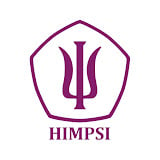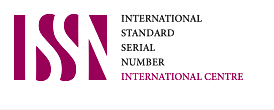ESOP sebagai Bonus Untuk Meningkatkan Motivasi dan Kinerja Para Karyawan
Abstract
Terdapat silang pendapat dari para manajer dan eksekutif perusahaan baik di Indonesia maupun di Luar Negeri mengenai pemberian bonus dengan bentuk program saham karyawan/employee stock ownership program untuk meningkatkan motivasi dan mendongkrak kinerja karyawan dengan tujuan agar memaksimalkan profit (maximizing company profit). Terlebih bagi karyawan yang sudah mendekati usia pensiun, sering terlihat bahwa mereka lebih mengutamakan kebahagian dan kesejahteraannya dan tidak terlalu mengutamakan peningkatan motivasi dan kinerja. Hal ini dikarenakan untuk mencapai kinerja yang baik, memang diperlukan kerja keras yang ekstra. Mereka sering berpikir lebih ke masa pensiunnya dimana mereka akan mendapat suatu dana pensiun. Penelitian ini mencoba menggali kondisi suatu perusahaan di Indonesia dan kemungkinan2 apa saja yang dapat meningkatkan motivasi dan kinerja para karyawannya, baik yang masih usia produktif ataupun yang sudah mendekati usia pensiun.
There is pros and cons amongst managers and executives around the world including in Indonesia regarding incentives such as ESOPs – Employee Stock Ownership Programs (as an alternative bonus) to boost employees motivation and performance which in turn to achieve company’s target of profit maximization. Moreover to the near pension employees, often come across that they prioritizing their happiness, well being and enjoying life without being burdened with company target which is translated to excessive work load. They tend to focus on their pension plans since they will get their pension funds which can be used for vacation or other activities and plans. This research tries to get the feel and condition of the Indonesian company and try to find out whether bonus (or other form of incentives) can boost motivation and performance of all employees (across all ages)
Keywords
Full Text:
PDFReferences
Angelova dan Regner (2018). Can A Bonus Overcome Moral Hazard? Experimental Evidence From Markeys for Expert Services. Journal of Economic Behavior and Organization, vol 143, 362 - 378
Aranda, Arellano, Davila (2019). Subjective Bonuses and Target Setting in Budget-based Incentive Contracts. Management Accounting Research, vol 43, 45-60
Grinstein dan Hribar (2004). CEO Compensation and Incentives: Evidence from M&A Bonuses. Journal of Financial Economics, vol 73, 119 -143
Maslen dan Hopkins (2014). Do Incentives Work? A Qualitative Study of manager’s Motivations in Harzardous Industries. Safety Science, vol 70, 419 - 428
Matolcsy, Shan dan Seethamraju (2012). The Timing of Changes in CEO Compensation from Cash Bonus to Equity Based Compensation: Determinants and Performance Consequences. Journal of Contemporary Accounting and Economics, vol 8, issue 2, 78 -91
Nikiforakis, Oechssler, and Shah (2019). Managerial Bonuses and Subordinate Mistreatment. European Economic Review, vol 119, 509-525
Pikulina, Renneboog, Horst, Tobler (2014). Bonus Schemes and Trading Activity. Journal of Corporate Finance, vol 29, 369-389
Pogrebnyakov, Kristensen dan Gammelgaard (2017). If You Come, Will They Built it? The Impact of the Design and Use of a Performance Management System on Researcher Motivation. Journal of Engineering and Technology Management, vol 43, 67 - 82
Tzu and Chung (2017). The Effects of Bonus Systems on Firm Performance in Taiwan’s High-Tech Sector. Journal of Comparative Economics, vol 35, 235 - 249
Yang, Fanzheng (2019). Peer-dependent incentives and Prepaid Bonuses: An Experimental Investigation of Productivity Improvement. Journal of Behavioral and Experimental Economics, vol 81, 152-163
Widener (2006). Human Capital, Pay Structure and the Use of Performance Measures in Bonus Compensation. Management Accounting Research, vol 17, 198 - 221
DOI: http://dx.doi.org/10.22441/biopsikososial.v3i2.9000
Refbacks
- There are currently no refbacks.
Copyright (c) 2020 Biopsikososial : Jurnal Ilmiah Psikologi Fakultas Psikologi Universitas Mercubuana Jakarta
JBUMBand its articles is licensed under a Creative Commons Attribution-ShareAlike 4.0 International License.
Tim Editorial Office
JBUMB
Fakultas Psikologi, Universitas Mercu Buana
Jalan Meruya Selatan No. 1, Kembangan, Jakarta Barat, 11650, Indonesia
Phone: +6281318855243
Email: [email protected]
Website: https://publikasi.mercubuana.ac.id/index.php/biopsikososial/index

















